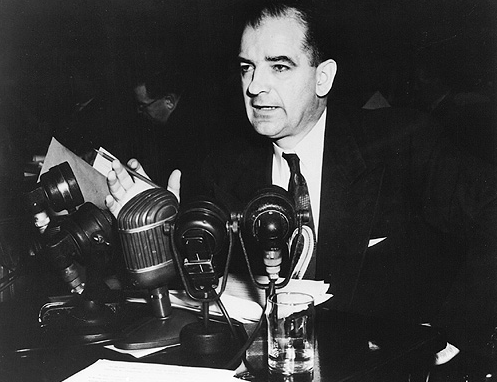Last week, Republicans in the Pennsylvania House introduced the Teaching Racial and Universal Equality (TRUE) Act. It’s the latest in a series of bills and laws seeking to ban “critical race theory” in classrooms. The sponsors assert that these bills do not restrict free speech or thought, but simply ensure that schools are not being used to indoctrinate young people. Yet the provisions of the Pennsylvania bill go further, prohibiting teaching about critical race theory in classrooms—not just in K-12 education, but also public universities.
These bills are a continuation of the culture war front that gave us “patriotic education” last fall. Just like political correctness, and cancel culture, “critical race theory” is coded language weaponized for political advantage. Unfortunately, as others have pointed out, there is long precedent for this type of legislative interference in classrooms.
This effort is an ill-disguised attempt to harness a backlash against racial equity initiatives. Although critical race theory is the crisis du jour, the current moral panic is about more than just a specific academic theory: it targets a range of race-conscious views and policies. Christopher Rufo, the activist who pushed the term critical race theory into the public consciousness, has not been subtle about this. “The goal is to have the public read something crazy in the newspaper and immediately think ‘critical race theory,’” he tweeted. “We have decodified the term and will recodify it to annex the entire range of cultural constructions that are unpopular with Americans.”
Ideas are a notoriously difficult thing to crush, but fear of retribution can easily silence necessary discourse about where we fall short as a country. Such was the case during the early Cold War, when Senator Joseph McCarthy led a series of investigations into communism and “un-American activities” within the federal government. Although he eschewed public confrontation with McCarthy, President Dwight Eisenhower confronted McCarthyism with the “hidden hand” approach he used so deftly during his presidency. In a commencement speech at Dartmouth, Ike rejected the fearmongering and persecution of communism, calling on Americans to embrace a higher form of patriotism. I’m quoting the speech at length because of how well it reverberates in our current moment.
Look at your country. Here is a country of which we are proud. . . . But this country is a long way from perfection—a long way. We have the disgrace of racial discrimination, or we have prejudice against people because of their religion. We have crime on the docks. We have not had the courage to uproot these things, although we know they are wrong. . . .
Now, that courage is not going to be satisfied—your sense of satisfaction is not going to be satisfied, if you haven’t the courage to look at these things and do your best to help correct them, because that is the contribution you shall make to this beloved country in your time. Each of us, as he passes along, should strive to add something.
It is not enough merely to say I love America, and to salute the flag and take off your hat as it goes by, and to help sing the Star Spangled Banner. Wonderful! We love to do them, and our hearts swell with pride, because those who went before you worked to give to us today, standing here, this pride.
And this is a pride in an institution that we think has brought great happiness, and we know has brought great contentment and freedom of soul to many people. But it is not yet done. You must add to it.
Don’t join the book burners. Don’t think you are going to conceal faults by concealing evidence that they ever existed. Don’t be afraid to go in your library and read every book, as long as that document does not offend our own ideas of decency. That should be the only censorship.
How will we defeat communism unless we know what it is, and what it teaches, and why does it have such an appeal for men, why are so many people swearing allegiance to it? It is almost a religion, albeit one of the nether regions.
And we have got to fight it with something better, not try to conceal the thinking of our own people. They are part of America. And even if they think ideas that are contrary to ours, their right to say them, their right to record them, and their right to have them at places where they are accessible to others is unquestioned, or it isn’t America.
Gen. Mark Milley, Chairman of the Joint Chiefs of Staff, channeled this position last week in Congress, explaining his belief that it’s important “for those of us in uniform to be open-minded and be widely read,” even on issues and perspectives he disagrees with. If that makes Milley a “pig,” as a Fox News host claimed, the chairman is in good company.
I want to be clear: Eisenhower was speaking about McCarthyism, not the “critical race theory” bugbear. Eisenhower had his blind spots, and a single quote doesn’t capture the complexity of the historical moment.
But that’s the point too. History is complicated. It requires different perspectives, different understandings, to make sense of it. Critical race theory—actual critical race theory—is a tool in the historian’s toolbox. If these laws succeed at banning it, they take away one of those tools. If they go further, they will have a chilling effect on speech and self-reflection in our public institutions.
At the end of the day, for all our disagreements, for all the flaws in our education system, how many people honestly think that more interference from politicians is the answer?
